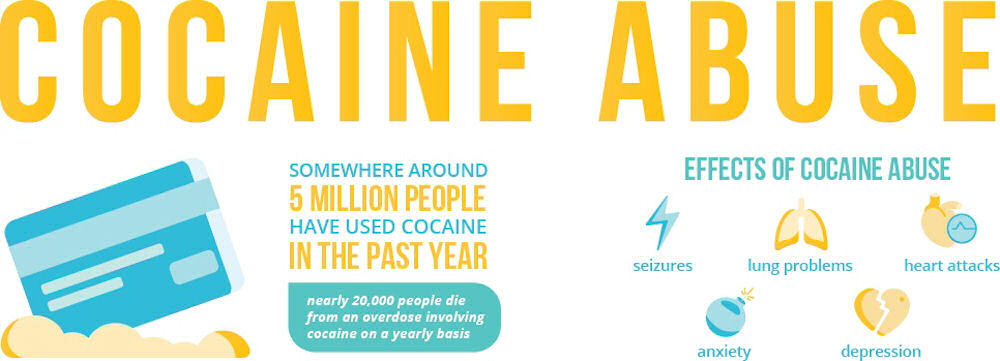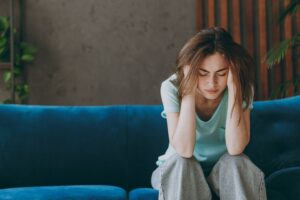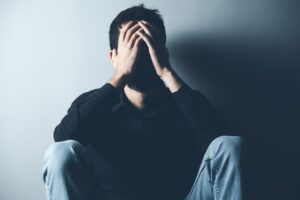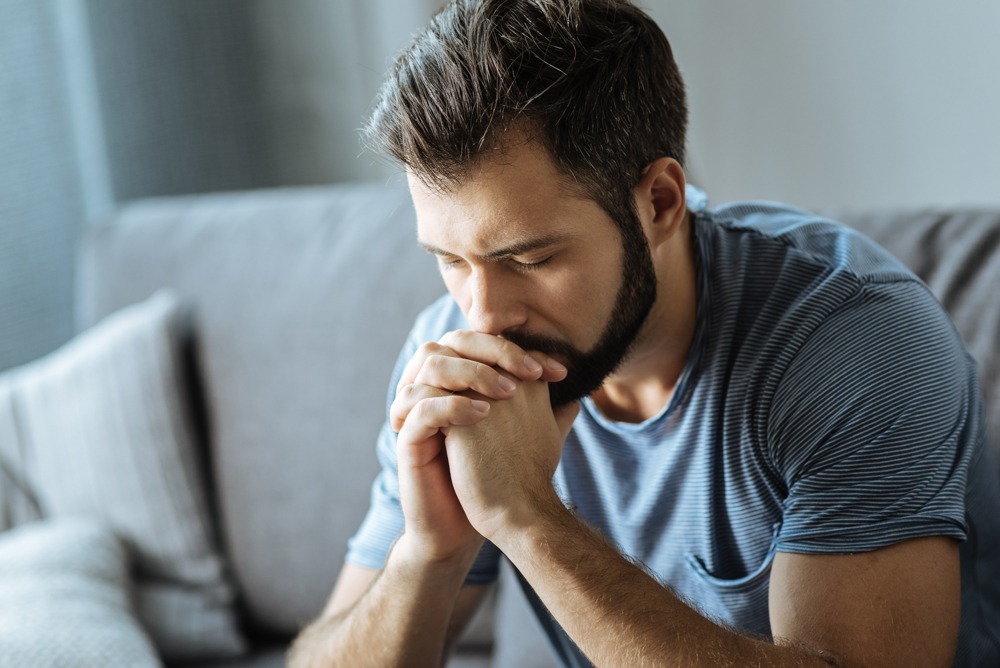Located in Ocean Park, Washington, Free by the Sea is a rehabilitation center in the state of Washington offering specialized treatment for cocaine addiction and other substance use disorders. Our facility provides comprehensive addiction treatment programs as part of a holistic approach to recovery. We serve Pacific County and beyond, providing clients from across Washington state with access to evidence-based care. Our goal is that, after completing your rehabilitation, you return to your community with the tools for recovery, health, and success.
Cocaine Use and Overdose Trends in Washington State

According to research, Washington state has seen a sharp increase in cocaine-involved overdose deaths. As of 2023, the rate of drug poisonings involving cocaine rose about 62% from its previous high in 2022. Over 80% of these deaths also involved one or more opioids. Cocaine overdoses are a serious risk of drug use, and can lead to life-threatening emergencies such as a heart attack, especially when cocaine is mixed with other substances.
These trends highlight the importance of timely and evidence-based treatment for cocaine addiction in Washington state.
Understanding Cocaine and Its Effects on the Body

Cocaine, also known as “coke” or “blow,” is a highly addictive stimulant drug derived from the coca plant. Leaves of the coca plant have been chewed for stimulant effects for thousands of years, and its leaves are processed today (often with very artificial ingredients like gasoline) to produce the drug.
Cocaine can be inhaled, smoked, or ingested. Even occasional use puts individuals at risk for severe health issues, particularly when mixed with fentanyl — a growing concern in Washington state. Cocaine use causes intense negative effects on important organs within the body, especially in the brain and the heart, and the effects become more severe over time with regular usage.
Short-term effects of cocaine use may include:
- Anxiety, panic, or paranoia
- Insomnia and disturbed sleep patterns
- Increased blood pressure and heart rate
Long-term effects can include:
- Permanent damage to blood vessels
- Respiratory failure or cardiovascular complications
- Fertility issues and tissue damage
- Increased risk of sudden overdose death
Snorting cocaine can also damage the nasal cavity, leading to nosebleeds and loss of smell. Because it is sold illegally, the chance for contamination or other substances to be mixed into a batch of cocaine is highly possible.
What is Cocaine Addiction?

Cocaine addiction is a destructive brain disease that consists of the user’s life becoming solely focused on getting and using cocaine. The four main symptoms of cocaine dependency are
- Loss of control: An inability to stop cocaine use
- Cravings: Having an obsession with and strong urges to use cocaine
- Tolerance: Increasing cocaine intake to get their desired effect
- Physical dependency: Needing cocaine to function or else major withdrawal symptoms are triggered.
Cocaine withdrawal can cause intense physical and psychological symptoms, including fatigue, depression, and strong cravings, making it difficult to stop without help.
Dependency can affect anyone, regardless of age, gender, or background. At Free by the Sea in Ocean Park, WA, we treat addiction as a medical condition that requires compassion and evidence-based care.
Risks for developing cocaine addiction include:
- Anxiety, depression, or loneliness
- Family history of drug abuse
- Poor support system
- Low self-esteem
- History of physical, emotional, or sexual abuse
- Family history of drug abuse
- Low self-esteem
- Abuse of other substances
Signs of Cocaine Addiction
If you believe you or someone you know is struggling with cocaine addiction, it’s important to seek help as soon as possible. Signs of cocaine abuse can include:
- A decline in school or job performance
- Neglecting responsibilities at home, work, and/or school
- Troubled relationships
- Isolation from friends and family
- Loss of appetite
- Unexplained weight loss
- Missing important dates, deadlines, and events
- Trouble sleeping
- Unexplained increase in energy
- Engaging in risky behaviors, such as driving under the influence
- Legal trouble stemming from cocaine abuse
- Lying about drug abuse
- Continuing to use cocaine despite negative consequences
Cocaine Rehab in Ocean Park, Washington

At Free by the Sea, our treatment center offers comprehensive addiction treatment and specialized addiction treatment programs for individuals struggling with cocaine addiction. Our cocaine rehab program is designed to address the physical, emotional, and behavioral aspects of addiction.
We provide several options to meet the unique needs of individuals seeking help, including:
- Residential Inpatient treatment offers 24/7 monitoring for individuals with severe addictions.
- Partial Hospitalization Program (PHP) is a program in which a person receives the comprehensive treatment of an inpatient recovery center while still residing in their own home.
- Intensive Outpatient treatment at our outpatient treatment center provides flexibility for those who need treatment while continuing work, school, or attending to family responsibilities.
People who attend our addiction treatment programs participate in a range of therapies and receive individualized care and support throughout their recovery journey.
Treatment includes:
- Medical detox support
- Individual therapy and group therapy
- Cognitive-behavioral therapy (CBT) and dialectical behavior therapy (DBT)
- Trauma-informed therapy
- Aftercare and life skills training
- Support for co-occurring mental health disorders (known as a dual diagnosis)
Our goal is to help individuals overcome cocaine addiction and achieve successful (and sustainable) recovery.
Why Choose Free by the Sea?

We are licensed to treat clients from throughout Washington state. Whether you are from Pacific County, neighboring regions, or urban areas of Washington, our Ocean Park, Washington, facility is positioned to provide both serene surroundings and full professional care. We offer many different treatment services, and our staff is equipped to handle even the most serious cases.
Highlights of our cocaine rehab program include:
- Licensed substance abuse therapists
- Residential facility with space for up to 77 clients
- Access to recreational therapy, sports courts, and wellness activities
- Nutritious, balanced meals to support healing
- Recovery programs including 12 Step groups, Celebrate Recovery, and Wellbriety
Our program is dedicated to supporting a healthier future for every client, focusing on sustainable recovery and long-term well-being.
Frequently Asked Questions About Cocaine Rehab in Washington State
What are the signs that I or a loved one needs cocaine addiction treatment?
Common signs include changes in behavior, withdrawal from family and friends, declining work or school performance, sudden weight loss, risky behaviors, and continuing cocaine use despite negative consequences.
What types of cocaine rehab programs does Free by the Sea offer?
We provide both inpatient and outpatient programs for cocaine addiction. Inpatient rehab offers 24/7 support in a structured setting, while outpatient treatment allows clients to continue work, school, or family responsibilities while attending therapy sessions. Each treatment program is customized to meet individual needs.
How long does cocaine rehab take?
The length of cocaine treatment varies based on individual needs, the severity of the addiction, and whether inpatient or outpatient care is chosen. Many clients begin with medical detox, followed by therapy, relapse prevention training, and eventually aftercare support.
Does cocaine rehab address co-occurring mental health conditions?
Yes. Many individuals with cocaine addiction also experience conditions such as depression, anxiety, or trauma. At Free by the Sea, we offer dual diagnosis treatment that addresses both substance use and mental health disorders to promote long-term recovery.
How dangerous is cocaine use in Washington today?
Cocaine use has become even more dangerous in recent years due to the raised chances of fentanyl contamination. In 2023, Washington state reported a 62% increase in cocaine-involved overdose deaths compared to 2022. Over 80% of those cases also involved opioids.
What makes Free by the Sea different from other Washington rehab centers?
Our Ocean Park campus combines professional, evidence-based care with a peaceful coastal setting. With space for up to 77 clients, licensed addiction specialists, holistic therapies, and programs like Wellbriety, we provide comprehensive support to help people achieve lasting recovery.
How do I start treatment for cocaine addiction at Free by the Sea?
The first step is to reach out to our admissions team. We’ll guide you through the process, verify insurance coverage, and recommend the best level of care for your situation.
Get Help for Addiction at Free by the Sea
You can stop the destructive cycle of cocaine abuse and end the havoc your cocaine addiction has wreaked on you and your loved ones. Don’t let this illness go untreated and take away everything you love.
To learn more about how we can help you or your loved one beat cocaine dependency via cocaine rehab, contact Free by the Sea in the state of Washington.

Dr. Richard Crabbe joined our team in 2019 as our psychiatrist and medical director. He attended the University of Ghana Medical School where he became a Medical Doctor in 1977. From 1978 through 1984, he was a medical officer in the Ghana Navy and provided a variety of services from general medicine to surgeries. He received his Certificate in General Psychology from the American Board of Psychology and Neurology in 2002.
Insurances We Accept
Free by the Sea recognizes the importance of having insurance to receive addiction treatment. Let us work with you to provide you or a loved one with premier addiction treatment services. We accept several private insurance plans. Verify your rehab coverage with us today to ensure you receive the support that you need! Find out if you are covered today!











